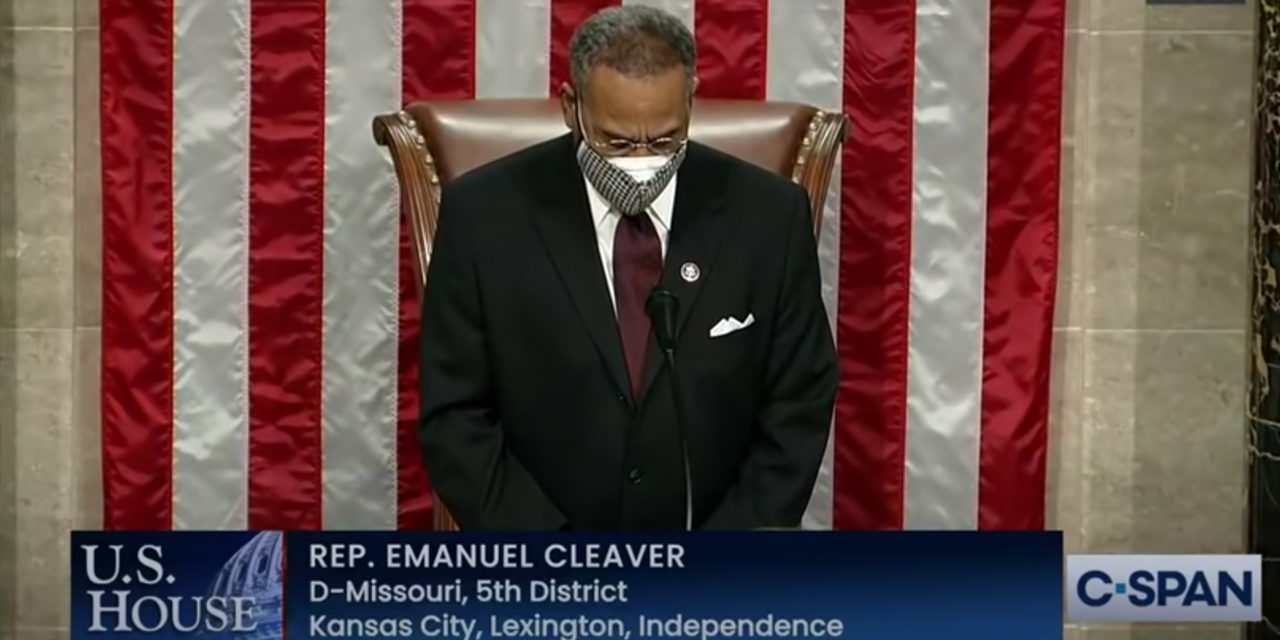It sounds like a headline straight out of The Babylon Bee: “Dems opened the 117th Congress today with a prayer that ended ‘amen and awoman.’”
But this comes from Not the Bee, which reports real news.
Not the Bee describes itself as “a humor-based news, opinion, and entertainment site from the creators of The Babylon Bee and Disrn” that features “some absurd and hilarious (but real) news that seems like it should definitely be satire.”
The news outlet went on to opine that Rep. Emanuel Cleaver, a Democrat from Missouri, prayed this way, “You know, to be gender neutral. Because we live in an episode of The Office.”
In the prayer, Cleaver asked God to help the representatives feel His presence in the midst of disagreement and to see themselves as they “really are, soiled by selfishness, perverted by prejudice and in inveigled by ideology.” I think we can all say “amen” to that, except for the misuse of “inveigled.”
He asked for God’s blessing and for peace “across this land,” praying, “and dare I ask, O Lord, peace even in this chamber – now and ever more.”
But it was the congressman’s conclusion that garnered all the attention: “We ask it in the name of the monotheistic God, and the God known by many different names, by many different faiths. Amen and awoman.”
Because Cleaver was wearing a mask, it was difficult to hear every word of the prayer, but some Twitter users heard the representative include the Hindu god “Brahma” or the Islamic “Allah” in the conclusion. You can decide if that’s what he said, here.
A quick look at a Bible concordance shows that “amen” is not a gendered word, referring to males. “Amen” is derived from a root Hebrew word meaning true or faithful or sure, and it means “truly” or “so be it.”
The word is used to end prayers, as in Psalm 41:13, which reads, “Blessed be the Lord, the God of Israel, from everlasting to everlasting! Amen and Amen.”
Or “amen” is used by a group of people to affirm something. That’s the case in Deuteronomy 27, when Moses is reviewing a variety of laws and pronouncing curses on those who break them. Verse 18, for example, reads, “‘Cursed be anyone who misleads a blind man on the road.’ And all the people shall say, ‘Amen.’”
Jesus often used “amen” at the beginning of statements, for emphasis, and this is usually translated “truly” or “truly, truly” in the New Testament. But as an affirmation of a prayer or agreement with a statement, “amen” is usually not translated, but is transliterated – borrowed directly from Hebrew.
The congressman may have been trying to conform to new House rules that mandate “Gender-Inclusive Language.” The resolution with the new rules, introduced by House Speaker Nancy Pelosi, D-Calif., and Rules Committee Chairman James McGovern, D-Mass., were designed to “honor all gender identities” and facilitate “an inclusive Congress to better reflect the diversity of the American people.”
In order to do so, the “Rules for the 117th Congress” change “pronouns and familial relationships in the House rules to be gender neutral or removes references to gender, as appropriate, to ensure we are inclusive of all Members, Delegates, Resident Commissioners and their families – including those who are nonbinary.”
In a joint press statement, the two called the rule changes “visionary” and “unprecedented, bold reforms.”
Cleaver, who is serving his seventh term in the House, should know what “amen” means. He has a master’s degree from St. Paul’s School of theology and is a United Methodist pastor, leading St James United Methodist Church in Kansas City, Missouri, for almost 40 years.
And he should know better than to transmogrify the biblical word, used by people of faith for thousands of years, into “awoman,” simply to appease the gender neutral dictates of the House Rules Committee. Can I get an amen?
Screenshot from YouTube






